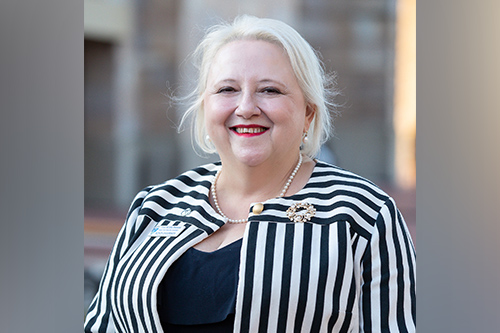
It’s been a big year for Bond University, but in many ways, it seems it’s only just getting started.
The Federal Government’s Employer Satisfaction Survey earlier this year found employers of Bond University graduates were amongst the most satisfied in Australia.
In August, the University took a step to ensuring they stay that way by launching a new suite of degrees to further enhance graduates’ employability.
Just last week, there was further cause to celebrate when one of the University’s academics, associate professor Peta Stapleton, was recognised as psychologist of the year at the 2019 Australian Allied Health Awards in Melbourne.
Indeed, effective and ground-breaking research has been instrumental in the University’s success, and this is something it intends to take up a notch next week when it launches its eighth annual Research Week from October 14-18.
The theme of this year’s Research Week is Engage, Influence, Impact, and includes an opportunity for the public to engage in several highlighted topics as diverse and future focused as tactical response research, the artificial mind, and the ethics of consumption.
Below, The Educator speaks to Deputy Vice-Chancellor (Academic), Professor Keitha Dunstan, to find out more.
TE: The theme of this year’s Research Week is ‘Engage, Influence, Impact’. Can you tell us about the innovative research being carried out by the University’s Research Centres?
Our researchers are passionate about their work and are focused on ensuring their outcomes produce results that will influence future research and/or have impact on society. They engage with industry and the community to ensure that our research makes a difference. Key areas of research focus are nurtured across a number of Research Centres including the Institute of Evidence-Based Healthcare, and six Research Centres. The research of these Centres includes Financial Big Data Analytics, to regenerative medicine (stem cells), to professional legal education. The Institute of Evidence-Based Healthcare is focused on four big neglected problems in healthcare (antibiotic resistance, over diagnosis, neglected non-pharmaceutical treatments, and waste in medical research).
The Clem Jones Centre for regenerative medicine is doing exciting work with stem cells and macular degeneration.
TE: I understand that Research Week will highlight topics such as tactical response research, the artificial mind, and the ethics of consumption. Why are these topics so important in 2019?
These topics exemplify the impactful applied research conducted at Bond. The Tactical Research Unit’s collaboration includes (but is not limited to) military, firefighting, law enforcement, and first response. A recent project of the TRU examined three different clothing variation and boot combinations, to assess the risk to movement imposed on firefighters. This work will help industry optimise future clothing design. The iCAM group are doing exciting work in the field of neuroscience, using a combination of human behavioural testing and functional neuroimaging. Consumer ethics has become more mainstream in recent times, and for business to better understand how to drive ethical consumption, they need to understand the forces that drive it.
TE: Looking ahead, what are some of the ways that Bond University will be strengthening its research capacity to remain competitive in the broader higher education market?
Bond continues to invest and support our researchers. Our vibrant Higher Degree Research Program and capacity building framework ensures that our researchers are equipped to produce world class research outcomes. Our post graduate research students receive training and support to ensure they are job-ready and prepared for careers in the public and private sector, as well as academia. The University also continues to improve and invest in the research infrastructure necessary to support our research teams. Our staff and research students are our key asset in the research portfolio and it is this supportive community that provides Bond with the competitive edge.


